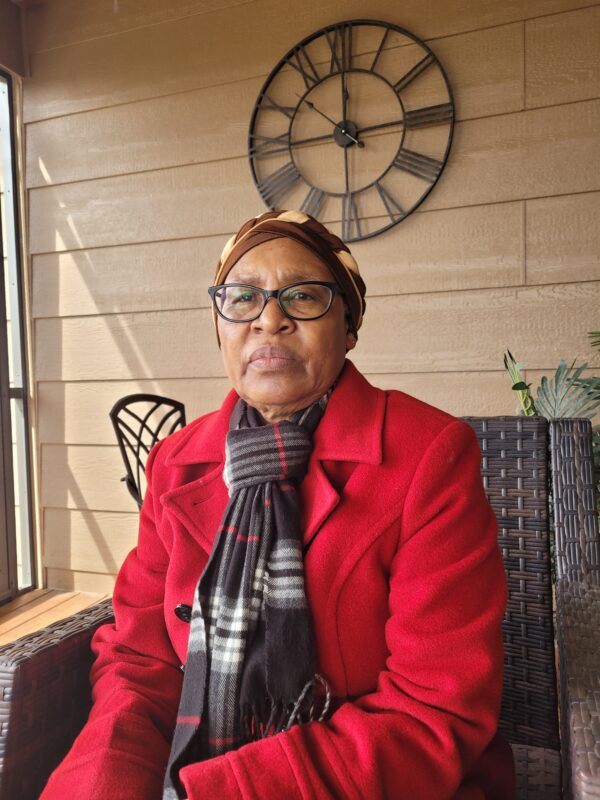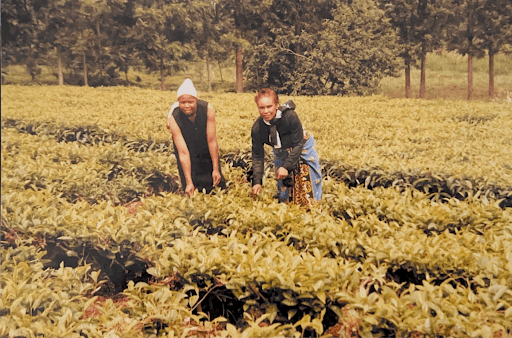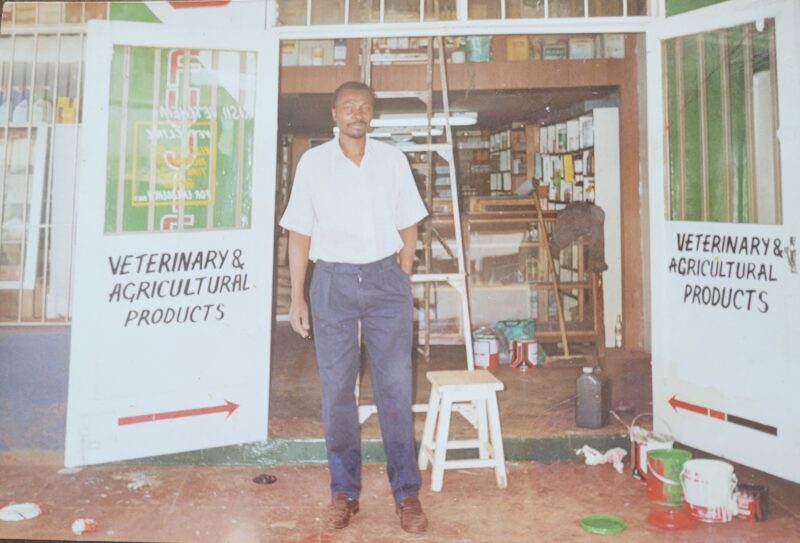This is a guest blog post from Lina “Mama Tshutshu” Nyaronge, Community Connector at Sharing Our Roots and Climate Land Leader. It is the first in a three-part series from Mama Tshutshu sharing perspectives on climate change, agriculture and community.

At last, summer is here! As I write from my home in Northfield, we are starting the planting season in our gardens. Already “chinsaga” and “managu,” some of our popular Kenyan vegetables, are sprouting. This is the best time to meet, share and exchange seeds and seedlings. We cannot wait to start eating fresh produce and share with others in the community. We pray that the weather will favor us.
I am a teacher by profession, but in my home town of Kisii, Kenya I also farmed. From 1985 to 2007, I raised dairy cattle for milk, chickens for eggs, and grew coffee and tea. As you may have read in the news, drought in Kenya has been increasing. Kenya has always experienced some drought, but in the past two decades droughts have doubled in frequency due to climate change, and now there is drought every two to three years.

In 2005, it became too hard to farm where I was. We had a very bad drought with not enough rainfall; the rivers were dry. Locusts, which also have been increasing, were plaguing the crops. It wasn’t economical to continue trying to raise livestock or crops, so I sold the animals as the coffee and tea plants dried up.
Deforestation in Kenya has compounded the effects of climate change. In addition to removing and storing planet-warming carbon dioxide from the atmosphere, forests play a significant role in storing rainfall and regulating water supply. Between 1963 when Kenya gained independence from Britain and 2009, forest cover in Kenya dropped from 10% to 6% due to charcoal and timber production, agriculture expansion, unregulated logging and urbanization. Deforestation is also destroying our pharmacy, which is the forest. I can afford Western medications, but others, like the Maasai, cannot.

Most people from North Kenya are pastoralists, so they move around with their livestock to find green pastures. When there’s enough rain, there’s enough pasture. When there’s not enough rain, there’s not enough pasture. Many people have lost animals. It is all interconnected: When there is not enough rain, crops don’t do well, animals don’t do well, and this leads to hunger – which causes people to move around and increases conflict.
This is why for our children, our grandchildren, and our great grandchildren, we must fight for the return of healthy ecosystems.
My husband and I are fortunate – we had enough income from his veterinary business in Kenya to send our three children to school in the U.S., at Bemidji State in Minnesota. In 2007 the disruption and violence following the elections drove my husband and me to move to the U.S. After landing in Northfield, I learned about the Greenvale Community Garden and began growing food there, including vegetables from my culture. I also began working with Sharing Our Roots where I am a Community Connector helping expand farming resources to Northfield’s East African community.
I find a sense of belonging within the community here. This is because I am a passionate farmer and love sharing ideas about our cultural ways of practicing farming together. I am also a strong believer in the word of God, and I have met others within the community who share this belief, which I am grateful for. I am making a new home here.
The earth is also our home. Now we are in danger of spoiling it, because we have not been friendly to it. It’s time for a reset.
We need a caring attitude toward the ecosystem, toward our home where we live. Until we reset on climate change, we won’t have a good home.
Read the second in this series: “Our vegetables are a delicacy here”
Read the final in this series: A communal response to climate change